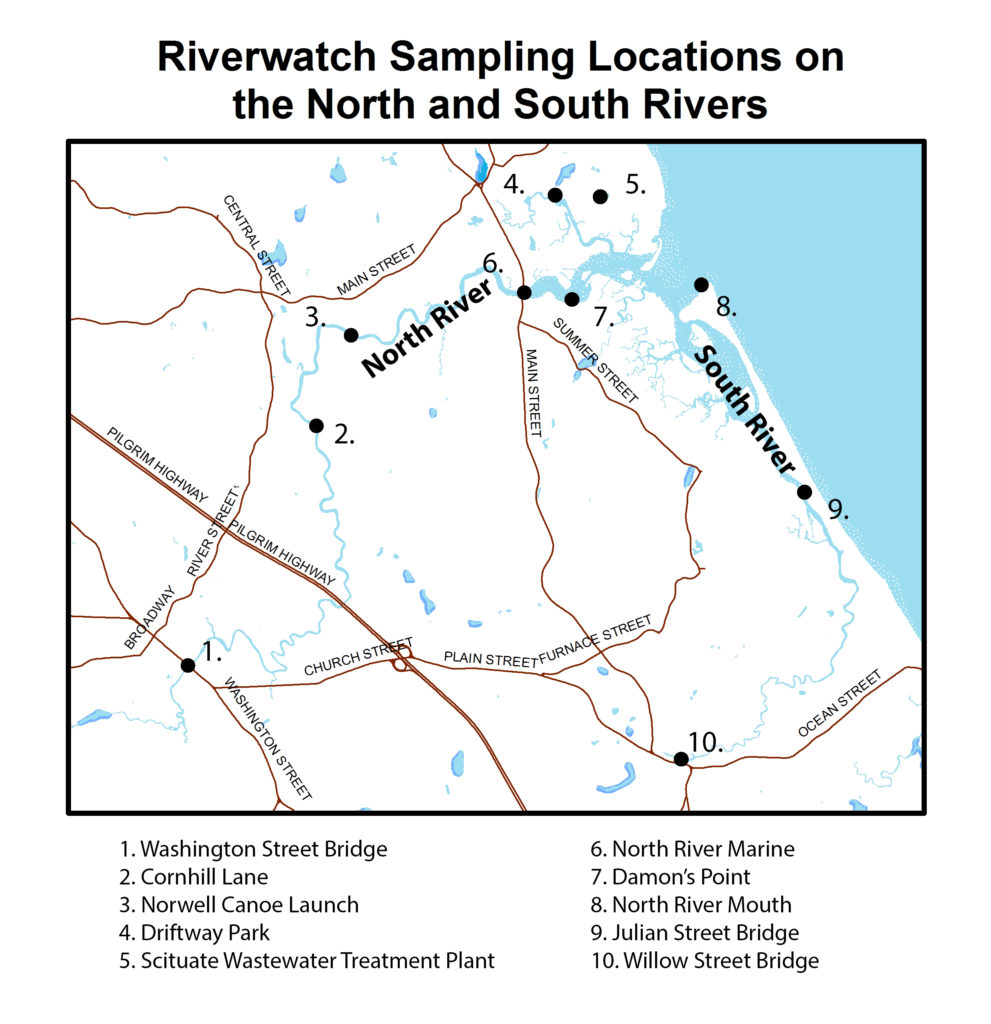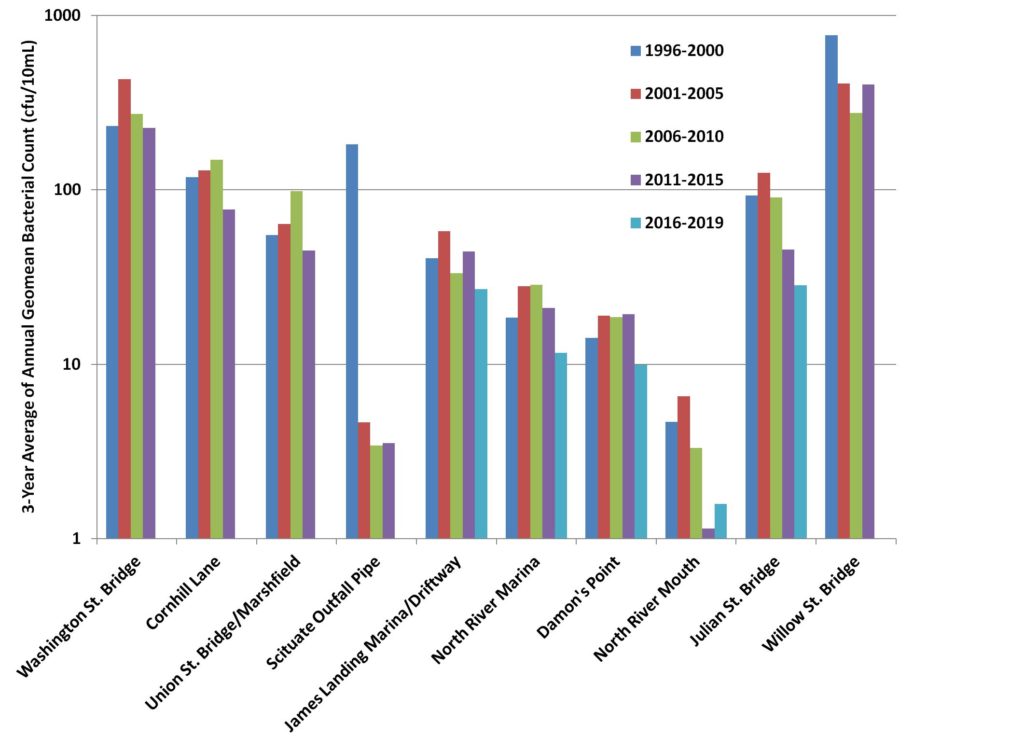 Looking Back at 26 Years of Water Quality Monitoring in the North and South Rivers
Looking Back at 26 Years of Water Quality Monitoring in the North and South Rivers
As of last year, the North and South Rivers Watershed Association has been sampling water quality at 10 sites (see map) for 26 years to evaluate the health of the rivers. This volunteer-driven program monitors the rivers every other week from the beginning of June to the end of August, with complementary projects allowing us to sample with greater frequency and in “hot spots” in some years.
We monitor for both swimming and shellfishing standards, each of which have specific concentrations of bacteria that are considered safe for humans. In 2017 we switched from testing fecal coliform at all sites (the former swimming standard of 400 cfu/100mL) to focusing on the areas where shellfish could be harvested (both in conditionally open areas as well as estuarine areas that still support shellfishing but are prohibited). The standard for shellfishing is 14 cfu/100mL. In 2017 we also expanded our enterococcus testing to include all ten sites, since that is the current standard for swimming in brackish and marine waters (104 cfu/100mL for a single sample). In addition to monitoring bacteria, we also monitor temperature, salinity, conductivity, and dissolved oxygen.
 Over the years bacteria counts have diminished in the rivers due to Title V septic improvements, implementation of town sewerage and improved treatment and minimization of stormwater runoff – all of which the NSRWA has advocated for using these data to make the case for reducing pollution sources. A graph showing five-year average snapshots of annual geometric means of fecal coliform counts shows an improvement over the last 20-25 years at all sites. The most impressive improvements have been at the headwater sites like Washington Street Bridge and Willow Street Bridge, as well as the Scituate Wastewater Treatment Plant. Due to these reductions, we have seen expansion of the shellfishing season in the North River and the opening of an additional 313 acres of shellfish beds in the South River in 2011.
Over the years bacteria counts have diminished in the rivers due to Title V septic improvements, implementation of town sewerage and improved treatment and minimization of stormwater runoff – all of which the NSRWA has advocated for using these data to make the case for reducing pollution sources. A graph showing five-year average snapshots of annual geometric means of fecal coliform counts shows an improvement over the last 20-25 years at all sites. The most impressive improvements have been at the headwater sites like Washington Street Bridge and Willow Street Bridge, as well as the Scituate Wastewater Treatment Plant. Due to these reductions, we have seen expansion of the shellfishing season in the North River and the opening of an additional 313 acres of shellfish beds in the South River in 2011.
It is a great asset for the NSRWA to have a solid water quality dataset that spans a quarter decade, and there are many more stories for the data to tell with further analysis; this is simply a quick summary. Thank you to the dedicated volunteers who have helped with this monitoring. We will be monitoring this year with existing trained volunteers, but if you are interested in volunteering next year (2021) please contact Sara Grady at sara@nsrwa.org or (781) 659-8168.
